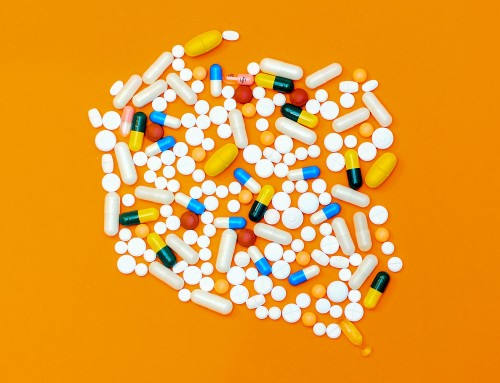Types of protein covered
- Whey
- Casein
- Egg
- Soy
- Pea
- Rice
- Hemp
Different Types of Protein
There are many different types of protein powders on the market which can make it very difficult when coming to choose the right one for you based on a variety of dietary reasons, (Vegan, lactose intolerant etc..).
No matter what type of protein, all varieties help aid muscle protein synthesis when combined with resistance training (1, 2). Other key features include increasing muscle mass (3), an increase in lean body mass (4) and greater recovery from exercise (5). Longer periods of supplementation have shown greater gains in fat free mass (6).
Although these benefits are seen, the efficiency and degree of change can differ significantly depending on the availability of the amino acids. Below lists some of the major types of protein powders available, and although this is not an exhaustive list more will be added.
The recommended amount to consume is around 20 – 30 grams, which can be spread throughout the day (e.g 4-6 x 5g).
Whey
Whey Protein is the most popular and widely used protein powder. It is derived from milk and is the watery part that separates when making cheese.
Unlike some plant based proteins whey protein has all amino acids so there is no need to find them from different sources. Whey protein is quickly absorbed and used in large amounts by your body immediately If you are lactose intolerant it is recommended not to go for whey protein due to bloating, flatulence, stomach ache or even fatigue.
Casein
Much like Whey protein, Casein is formed from milk during the cheese making process. Once separated, Acids are added separated from whey protein and formed into a solid state. Unlike whey; casein protein takes much longer to digest and has beneficial effects during the recovery process helping to rebuild muscle post exercise, (7).
Egg
Egg protein is derived from the white an egg which is dehydrated into a fine white powder. The effects of egg protein have been found to be the same as whey protein due to the same combinations of amino acids, but the speed at which it can be absorbed is slightly slower pointing to more beneficial post exercise.
Soy
Unlike other plant based sources; soy protein powder has the same amino acid profile as whey protein but due to not containing any lactose it is the perfect choice for both vegans or people with a lactose intolerance; with evidence of the same benefits (9) . Made from defatted, dehydrated soy bean flakes it has been found to help with lowering cholesterol levels (8).
Pea
Pea Protein has been shown to have the same effect on muscle mass as whey protein (10). It also contains a healthy amount of iron with a low amount of carbs,fat and sugar; which could be of benefit for people wanting to better control their blood glucose levels, (11).
Derived from yellow split peas the methods of extraction can vary ranging from salt extraction, micellization as well as alkaline extraction among many others, (12). One study found that the protein content of pea protein was higher than soy (13). Despite the positive benefits of Pea protein it has been found to be low in methionine which may need to be supplemented due to liver damage if insufficient,(14).
Rice
Rice Protein is extracted from rice flour and has been found to help mostly for post exercise recovery, (15). It does contain lysine, (an amino acid essential for muscle growth), however due to the lower quantity it the effects may occur in the longer term.
Hemp
Hemp Protein does have a complete amino acid profile which can theoretically help gain lean muscle mass. However Hemp protein has been found to be low in lysine which might need to be added separately. In comparison to Whey protein; hemp is higher in arginine (13), but lower in leucine and isoleucine which may mean you would have to consume more to get the same benefits.
Summary
Although There is a plethora of protein powder that are available on the market these days, if you have not got any dietary requirements then Whey is the one for you as this can give you the full amino acid profile, whereas other plant based powders may not have or be low in some vital amino acids required for full benefits. If this is the case consuming Soya would be the best option or specific supplements with these amino acids could be another option.
High amounts of protein powders have been linked with kidney issues so ensuring that no matter what type of protein you use the recommended consumption is 20-30g a day split into 2-4 times a day.
References
1 – Greenhaff, P.L., Bodin, K., Soderlund, K., Hultrnan, E. (1994). The influence of oral creatine supplementation on muscle phosphocreatine resynthesis following intense contraction in man. American Journal of Physiology, 266(5), 725-730.2 – Harris, R. C., Soderlund, K. & Hultman, E. (1992). Elevation of creatine in resting and exercised muscle of normal subjects by creatine supplementation. Clinical Science. 83(3), 367-374.3 – Balsom, P. D., Soderlund, K., & Ekblom, B. (1994). Creatine in humans with special reference to creatine supplementation. Sports Medicine. 18(4), 260 – 280.4 – Lemon, P.W.R. (2002). Dietary Creatine Supplementation and Exercise Performance: Why Inconsistent Results? Canadian Journal of Applied Physiology. 27(6), 663-680.5 – Myburgh, K. H., Bold, A., Bellinger, B., Wilson, G., & Noakes, T. D. (1996). Creatine Supplementation and Sprint Training in Cyclists: Metabolic and Performance Effects 483. Medicine & Science in Sports & Exercise, 28(5), 81.6 – Vandenberghe, K., Goris, M., Van Hecke, P., Van Leemputte, M., Vangerven, L., & Hespel, P. (1997). Long-term creatine intake is beneficial to muscle performance during resistance training. Journal of Applied Physiology, 83(6), 2055-2063.7 – Green, A. L., Hultman, E., Macdonald, I. A., Sewell, D. A., & Greenhaff, P. L. (1996). Carbohydrate ingestion augments skeletal muscle creatine accumulation during creatine supplementation in humans. American Journal of Physiology-Endocrinology And Metabolism, 271(5), 821-826.




